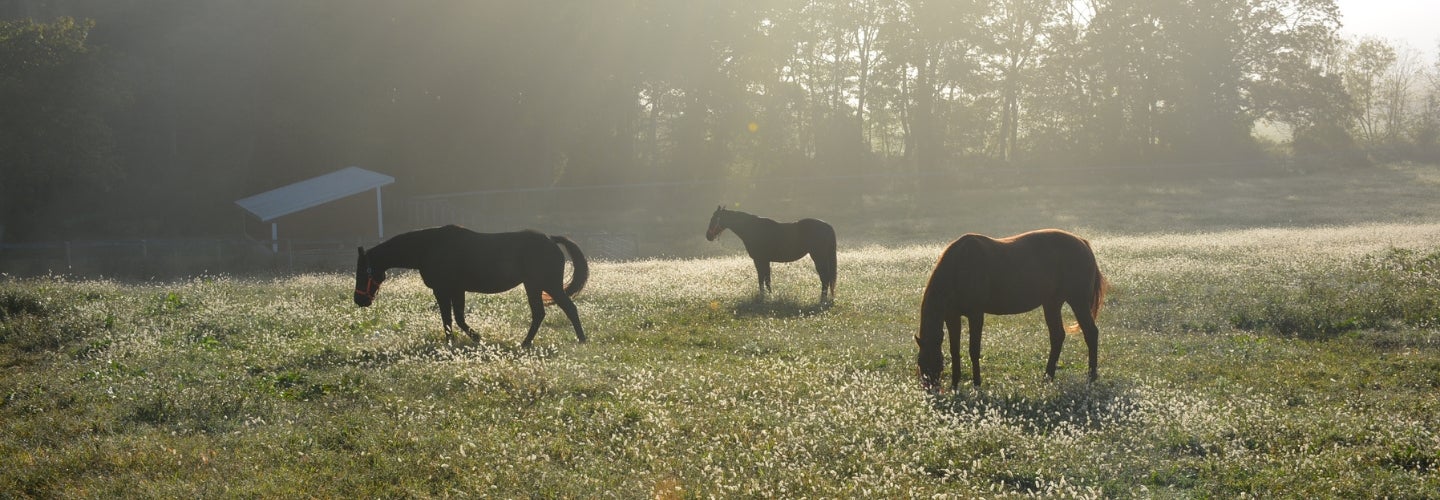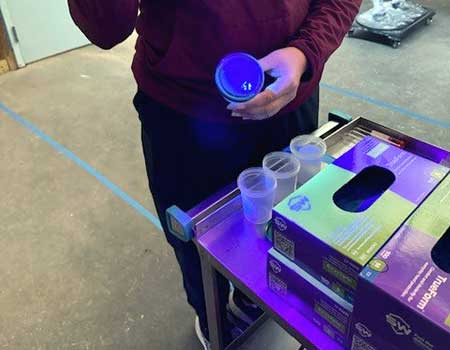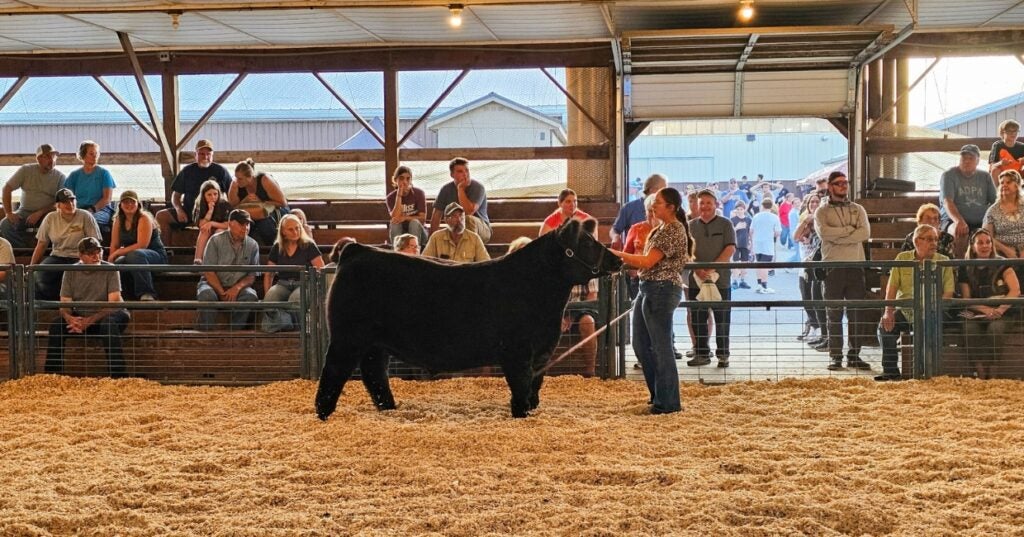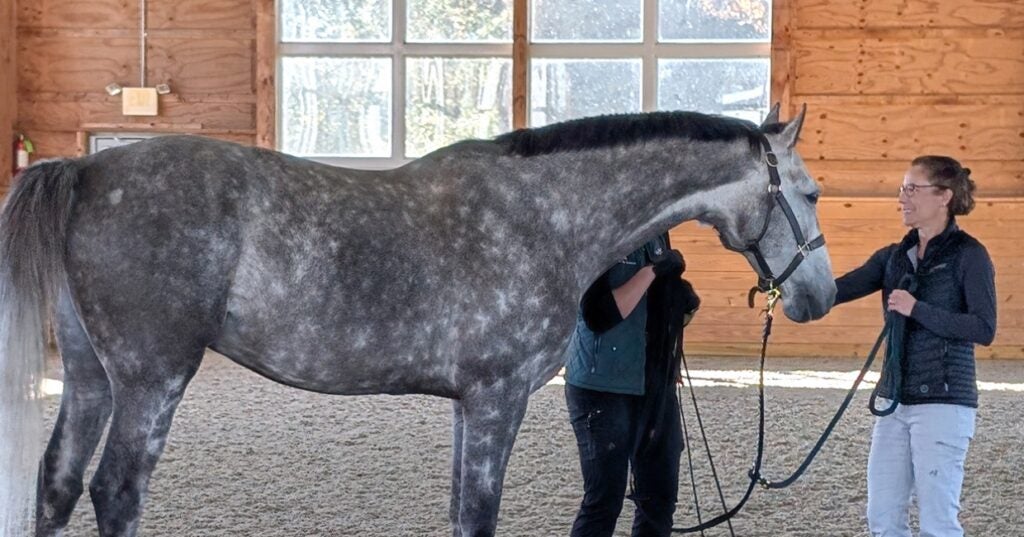
Department of Clinical Studies – New Bolton Center
Introduction
New Bolton Center’s (NBC) Clinical Studies department is dedicated to improving large animal health and productivity, and advancing the science of diagnosing, treating, and preventing animal diseases. Clinical service, research, veterinary education, and training interns and residents are the foundation of the department. NBC’s hospital, field service, swine unit, and Marshak Dairy provide students with one of the largest, large animal caseloads in the country.
Expertise and Services
Anesthesia
Veterinary anesthesiology has followed human medicine, providing the safest possible anesthetics, assisted ventilation, oxygen delivery, monitoring, and vital status support.
Field Service
Our Equine and Food Animal Field Services are a fully equipped ambulatory practice offering preventative health care, herd health, reproductive services, lameness evaluation and treatment, medical and surgical assessments, on farm diagnostic services, and emergency veterinary care for equids, cattle, and some small ruminants.
Imaging
Offering a comprehensive selection of imaging modalities, the imaging group specializes in large animal cardiac and ultrasound examinations, radiographs, bone scans, CT, and MRI examinations.
Large Animal Internal Medicine
This specialized area of veterinary care encompasses expertise across numerous medical disciplines, including neurology, oncology, endocrinology, pulmonology, and neonatology, among others. Our internal medicine specialists bring advanced experience in diagnosing and managing complex and uncommon cases. Our faculty and residents also actively engage in clinical research, continually enhancing our understanding and improving the health and care of our patients.
Reproduction
The Georgia and Philip Hofmann Center for Animal Reproduction offers reproductive evaluation, diagnostics, and treatment from a team of four board-certified reproduction specialists and a board-certified behaviorist.
Sports Medicine
The service aims to provide precise diagnoses and develop targeted treatment plans tailored to each horse’s specific needs. Offering a comprehensive range of therapies for injuries and other performance related issues, all with the goal of safely restoring your horse to peak performance following injury or illness.
Surgery
Our faculty serve to mentor the next generation of large animal surgical leaders, the New Bolton Center surgery team undertakes research on large animal orthopedics, biomechanics, and soft tissue disorders.
Learn More About Clinical Studies

NBC Clinical Studies Faculty

Research
Connect With Us
University of Pennsylvania
School of Veterinary Medicine
Department of Biomedical Sciences
New Bolton Center
382 West Street Road
Kennett Square, PA 19348
Department Chair
Staff
Assistant to the Chair
Patricia Antes
(610) 925-6320
antes@vet.upenn.edu
Related News

New Bolton Center Surgeons Come Through for Howee the Steer and his Girl
Mallie Touchton was always a farm animal kid. Since she was 8, Mallie was raising and showing her own market livestock – pigs, goats, and dairy calves. Even though she…

Behind the Breakthroughs: Amy Johnson
Balancing clinical care with scientific inquiry, Penn Vet’s Amy Johnson leads efforts to decode the complexities of neurologic diseases in horses

In the Office with Donna Kelly, DVM, MASCP, DACPV, DACVPM
Donna Kelly, DVM, MASCP, DACPV, DACVPM, shares her New Bolton Center office with the campus’s microbiology reference library.
Interested in joining the Penn Vet Team?
View open positions to get a chance to join a collaborative environment.

